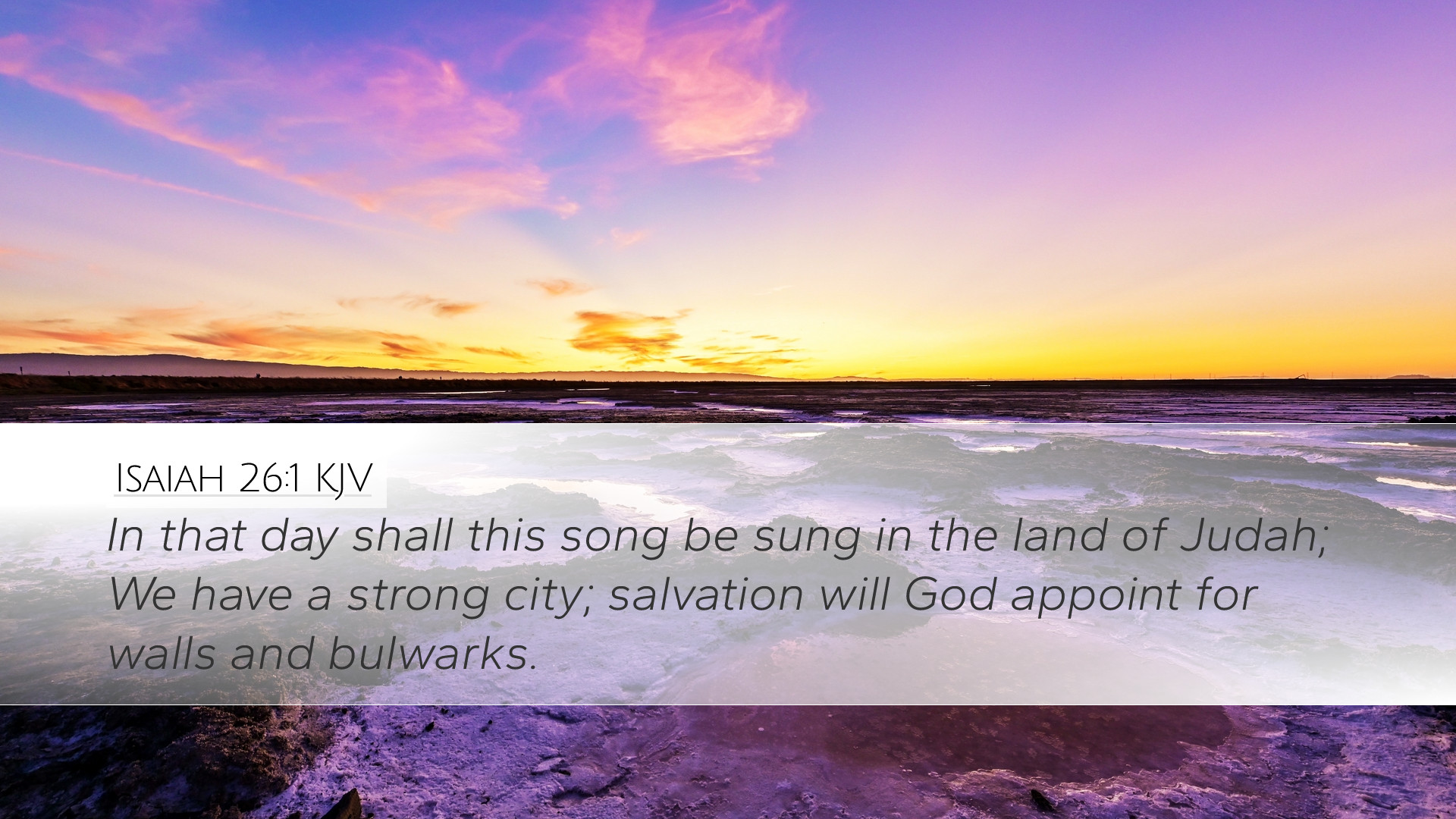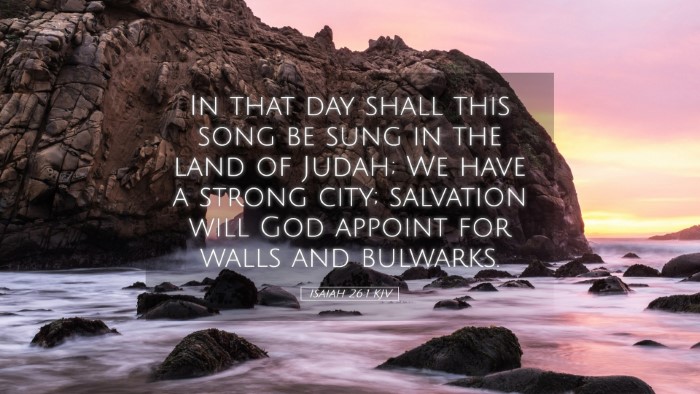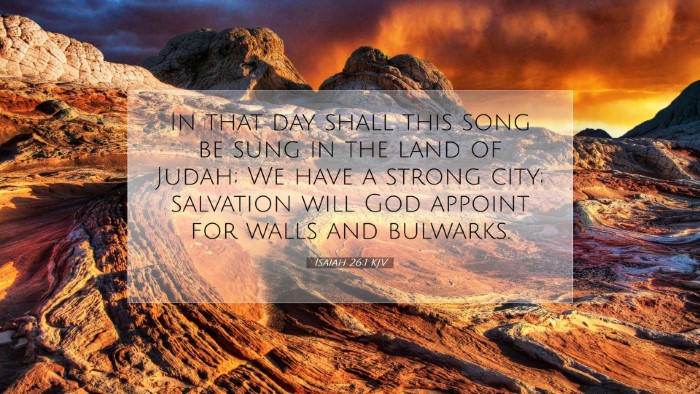Commentary on Isaiah 26:1
Isaiah 26:1 states: "In that day shall this song be sung in the land of Judah; We have a strong city; salvation will God appoint for walls and bulwarks." This verse has been the subject of much theological reflection, as it encapsulates the themes of divine protection, redemption, and the ultimate triumph of God's people. Below, insights from various public domain commentaries are summarized to provide a comprehensive look at this important text.
Contextual Background
This verse is part of a passage that expresses joy and vindication for the people of God. The phrase "In that day" refers to a future time when God will protect His people and establish His kingdom definitively. The "land of Judah" signifies the Jewish people and serves to remind the readers of the covenant relationship between God and Israel.
Strong City: Symbolism of Security
According to Matthew Henry, the "strong city" symbolizes God's strength as a refuge for His people. It is indicative of safety in times of turmoil and acts as a metaphorical representation of the heavenly Jerusalem, where believers find ultimate security and peace. Henry emphasizes that the city is fortified not by mere human effort, but by divine provisions, highlighting God’s sovereignty over human affairs.
Salvation as Walls and Bulwarks
Albert Barnes interprets the "salvation" mentioned in the verse as God's encompassing protection for His people. He points out that salvation serves as the structural integrity of the city, akin to walls and bulwarks which prevent intruders and provide safety from enemies. Here, Barnes suggests that God's salvation is not passive; it actively works to shelter and defend those who trust in Him.
Divine Protection
In the commentary of Adam Clarke, he expands on the notion of divine walls and bulwarks. Clarke notes that the security provided by God is comprehensive. The walls signify spiritual fortitude, while the bulwarks represent the obstacles and challenges that God helps His people overcome. His observations lead to the conclusion that the faithful are eternally shielded from the perils of both earthly and spiritual adversaries.
Thematic Insights
- Hope amidst Adversity: The verse serves as a powerful reminder of hope in adversity. It assures believers that despite their struggles, God is actively engaged in their salvation.
- Enduring Praise: The song mentioned in the verse signifies an enduring expression of gratitude and worship. It reflects the idea that their deliverance should lead to celebrations of God’s faithfulness.
- Community Strength: The collective aspect of this song suggests that the strength of God's people lies in their unity and shared faith, as they collectively experience His salvation.
Application for Today’s Believers
For pastors and theologians today, Isaiah 26:1 serves as a pivotal reminder of the foundations of faith. As they navigate the challenges of ministry and life, they are encouraged to remember that true security comes from God's salvation, which acts as a steadfast fortress. It invites believers to rejoice in their identity as inhabitants of God’s city, providing both a challenge and an assurance in their spiritual walk.
Conclusion
Isaiah 26:1 is rich with theological significance, offering insights into the nature of God's protection and the ultimate victory of His people. The combined wisdom of public domain commentaries such as those by Henry, Barnes, and Clarke enrich our understanding and encourage a deeper exploration of our faith in the face of adversity. As we celebrate the security found in God’s salvation, let us echo this song of victory with hope and truth, knowing that we reside in the strong city of our Lord.


